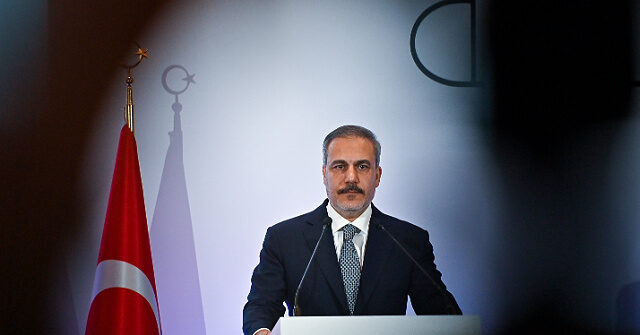Turkish Foreign Minister Hakan Fidan recently called on jihadi rebel factions in Syria, specifically those linked to al-Qaeda, to unite with Turkish forces in their opposition against Kurdish groups. Fidan expressed a desire for cohesion among “opposition groups,” a sentiment he clarified by excluding Kurds from this coalition. He emphasized Turkey’s primary objectives in Syria: fostering a peaceful transition, maintaining the country’s territorial integrity, and reducing the influence of Kurdish factions. This focus on unity is, however, coupled with a clear message that the Kurds are not included in Turkey’s vision for a cohesive Syrian opposition, underscoring the complex and often exclusionary nature of Turkey’s foreign policy in the region.
Turkey has seen the Syrian Kurdish groups, particularly the U.S.-supported Syrian Democratic Forces (SDF), as threats on par with ISIS. Fidan made it clear that Turkey is prepared to collaborate with allied Syrian militia groups to combat both ISIS and the SDF, which Turkey associates with the Kurdistan Workers Party (PKK) — a designated terrorist organization in Turkey. This illustrates Turkey’s vested interest in curtailing Kurdish influence in Syria and its commitment to engaging with various militia factions to achieve its strategic objectives. Fidan’s remarks highlight the tense dynamics of U.S.-Turkish relations, particularly concerning their differing views on Kurdish forces in Syria.
Since the onset of the Syrian civil war, Turkey has executed multiple military incursions into Syria, primarily targeting Kurdish militia groups along the border. By forming alliances with opposition militia groups such as the Syrian National Army (SNA), Turkey has sought to create a buffer zone free from Kurdish control. The SNA has capitalized on opportunities presented by the actions of jihadist groups like Hayat Tahrir al-Sham to expand its territory, recently advancing significantly through northern Syria. However, this grouping remains notoriously disjointed, often perceived as mercenaries in service of Turkish interests rather than a genuine national army, raising concerns about accountability and human rights violations in regions they occupy.
As the Syrian National Army claimed victories in securing towns like Manbij, backed by Turkish support, President Recep Tayyip Erdogan heralded these developments as a “liberation” from Kurdish forces, reiterating Turkey’s narrative that their operations are fundamentally defensive. Erdogan’s remarks reflect a broader agenda aimed at reinforcing Turkey’s national security while framing the military interventions as humanitarian in nature. This narrative seeks to validate Turkey’s military involvement, presenting support for Syrian refugees as a moral obligation while holding the Syrian government accountable for failures in addressing humanitarian needs during the conflict.
On the other hand, Kurdish groups have called for protection of their administrative accomplishments in northeastern Syria and urged a national dialogue to foster a decentralized and pluralistic governance structure. Their defensive posture contrasts sharply with Turkey’s exclusionary stance toward the Kurdish population and echoes the need for inclusive governance frameworks in reflecting Syria’s diverse demographics. The Kurdish forces, particularly the SDF, position themselves as legitimate representatives of the Syrian populace who prioritize pluralism and democracy, further complicating the narrative surrounding Turkey’s military interventions and its ideological battle against Kurdish groups.
The ongoing situation in Syria remains precarious, with analysts raising concerns about the potential for fragmentation similar to what occurred in Libya following the fall of Moammar Qaddafi. Rival factions are vying for control, each faction backed by external sponsors, which raises the likelihood of clashes amid a power vacuum. Experts warn that without a concerted effort by international and regional actors to mediate and unify these factions, Syria could slide further into chaos. The complexities of internal dynamics, foreign influences, and the ongoing conflict illustrate the urgent need for a unified strategy to address the myriad challenges facing Syria’s future in a post-Assad landscape.

